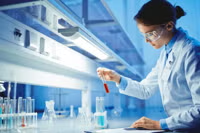WASHINGTON (September 19, 2024) – The American Chemistry Council (ACC) praises Congressmen Dr. Larry Bucshon, R-Ind., and Don Davis, D-N.C., for their ground-breaking, solutions-oriented legislation aimed at increasing plastics recycling and preventing plastic from ending up in the environment. The “Accelerating a Circular Economy for Plastics and Recycling Innovation Act of 2024” is the first comprehensive bipartisan effort by Congress in years to tackle plastics pollution in the United States. The bill would modernize the nation’s outdated recycling infrastructure and increase the use of recycled material in new products.
This bill would bring about transformational change to how we recycle plastics in this country, while creating regulatory certainty for businesses to tackle these important challenges. Reps. Bucshon and Davis have introduced the first bipartisan recycling bill that supports American workers and is good for the environment. Both outcomes are possible, and I thank them both for their leadership.
The bill stands to make an impact by:
- Tasking the EPA to establish national plastic recycling standards across the United States to increase the national recycling rate. Currently, there are more than 9,000 recycling jurisdictions in the U.S. with differing recycling practices.
- Requiring a minimum recycled content mandate for plastic packaging of 30 percent by 2030. This standard will drive increased private investment in plastics recycling and incentivize the use of packaging designed for recycling. The U.S. recycling rate for plastic packaging is around 13% and the bill would more than double it by 2030, an important near-term target that would set the stage for even higher levels in future years.
- Assigning the National Academy of Sciences to conduct a lifecycle study comparing the carbon impact and greenhouse gas emissions from comparable product materials that will guide informed policy.
- Establishing a legal framework for new recycling technologies to support continued investment and innovation.
“America’s plastic makers are investing in solutions to recapture and reuse significantly more of our plastic resources, and this bill will help accelerate our progress,” said Ross Eisenberg, president of America’s Plastic Makers®, a division of ACC. “The Bucshon/Davis bill offers a pathway for the drastic change needed to modernize America’s recycling infrastructure.”



